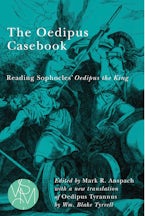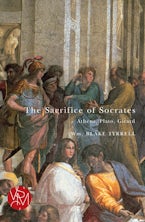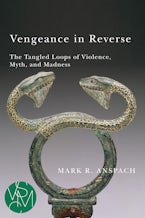Who killed Laius? Most readers assume Oedipus did. At the play’s end, he stands convicted of murdering his father, marrying his mother, and triggering a deadly plague. With selections from a stellar assortment of critics including Walter Burkert, Terry Eagleton, Michel Foucault, René Girard, and Jean-Pierre Vernant, this book reopens the Oedipus case and lets readers judge for themselves. The Greek word for tragedy means “goat song.” Is Oedipus the goat? Helene Peet Foley calls him “the kind of leader a democracy would both love and desire to ostracize.” The Oedipus Casebook readings weigh the evidence against Oedipus, place the play in the context of Greek scapegoat rites, and explore the origins of tragedy in the festival of Dionysus. This unique critical edition includes a new translation of the play by distinguished classics scholar Wm. Blake Tyrrell and the authoritative Greek text established by H. Lloyd-Jones and N. G. Wilson.
ContentsPreface, by Mark R. AnspachAcknowledgmentsSophocles, Oedipus Tyrannus, Greek text edited and annotated by H. Lloyd-Jones and N. G. Wilson, translated into English by Wm. Blake TyrrellPart One. The Ritual BackgroundGreek Tragedy and Sacrificial Ritual, by Walter BurkertScapegoat Rituals in Ancient Greece, by Jan BremmerThe Exposed Infant, by Marie DelcourtPart Two. King and VictimImitating Oedipus, by Mark R. AnspachOedipus and the Surrogate Victim, by René GirardExcerpt from Sweet Violence, by Terry EagletonAmbiguity and Reversal: On the Enigmatic Structure of Oedipus Rex, by Jean-Pierre VernantOedipus as Pharmakos, by Helene Peet FoleyPart Three. Oedipus on TrialExcerpt from Wrong-Doing, Truth-Telling, by Michel FoucaultThe Murderers of Laius, by William Chase GreeneThe Murderers of Laius, Again (Soph. OT 106–7), by Rick M. NewtonWho Killed Laius? by Karl HarshbargerLêistas Ephaske: Oedipus and Laius’ Many Murderers, by Sandor GoodhartAn Anonymous Namer: The Corinthian’s Testimony, by Frederick AhlIndex



